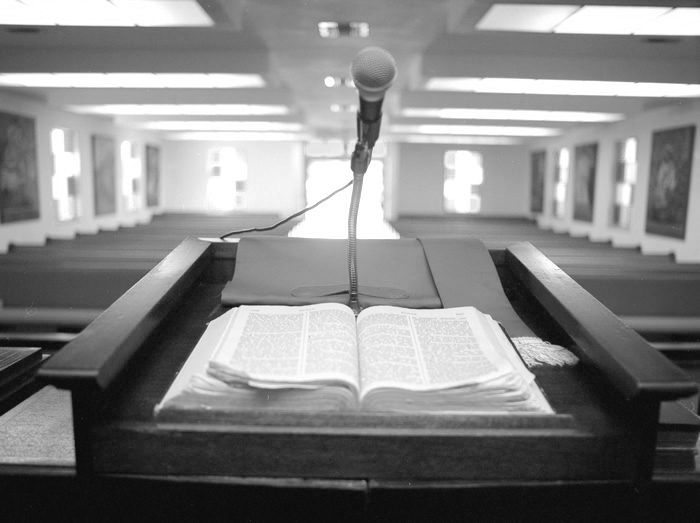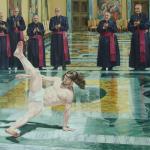This semester I’ve been taking a class called “Worship, Culture, Technology.”
As you might expect from the name, the class is about the ways technology is affecting the church and the Christian faith in general.
As you also might expect, as a Christian blogger I’ve really enjoyed the class.
The past couple of weeks we’ve had a visiting professor from Germany sit in on our classes. He stopped by our class originally to talk about an article of his that we read about how the internet is impacting worship. He’s since stayed around as we gave our presentations over the last couple of weeks.
Last night he made a speculative comment that I found to be absolutely fascinating and if it turns out to be true, would radically reshape church as we know it.
But before I tell you what he said, let me give you some context for his comment.
One of the core issues we’ve discussed in class this semester is how the internet has leveled the playing field in the church. Websites, blogs, and social media have allowed anyone and everyone, not just clergy, to preach, teach, and lead the people of God. The term we’ve used for this is “horizontal leadership,” meaning there’s not a hierarchy in the church which the pastor, priest, or bishop stands over and above everyone else in a position of authority. Obviously church hierarchies still exist all over the place, but the internet has made tremendous strides in reshaping who, what, and where lay people look to guide their faith, including taking positions of leadership in that conversation themselves.
Another way to think about this is to look at where the pulpit stands in a sanctuary. Visit an old church (or a handful of new ones) and you’ll see the pulpit or lectern set off to the left and elevated relatively high above the congregation. Since the days of Charles Finney and the Second Great Awakening, the pulpit was moved down to ground level so that the preacher was essentially at eye level and, at least symbolically, on equal ground with the congregation. However, the preacher was still in a place of authority in front of the congregation.
The internet has made everyone an authority, or at least given everyone the sense, if not possibility, that with enough dedication, a dash of good writing, and a halfway decent looking website they can be an authority on whatever they think they’re an authority on.
The downside of this, of course, is the reality that all sorts of misinformation and terrible ideas are spread under the guise that they are coming from an authoritative source when in fact they’re coming from someone who doesn’t know anymore than what they could copy and paste from Wikipedia.
On the upside of this leveling of the church is that the idea of a priesthood of all believers has the chance to be realized more fully than perhaps at any point in the history of church.
Which is what led to our visiting German professor’s speculation.
As he wondered aloud (but in a much more eloquent manner), if the average churchgoer is already getting much of their theology, Biblical knowledge, challenges to live out their faith, etc. from places like the internet and, moreover, if they feel empowered to contribute to that conversation themselves, are we approaching a point where the average churchgoer will no longer be interested in or willing to listen to someone stand up in front of them to preach?
That is to say, are we reaching the end of the age of professional preachers in the local church?
As crazy as that might sound at first, if the historical movement of the pulpit is any guide, this would actually seem to be the next logical step.
The pulpit is, essentially, about authority. It has moved from being over and above the congregation down to eye level. Is it’s next move to disappear altogether to give way to some new form of church in which a priesthood of all believers actually share authority equally?
I’m not sure that day is coming next week, next year, or even in the next decade, if it ever comes at all. But it certainly is something interesting to think about.
If the internet really is leveling the authority of the church and giving much of that authority back to the people, what will that mean for the church?
More specifically, what would a church service look like without a traditional pastor or priest doing the things normally only they do?
Is that even a possibility?
Sound off in the comments section and let me know what you think.
I’m eager to hear what you see in your ecclesial crystal ball.
Grace and peace,
Zack Hunt













